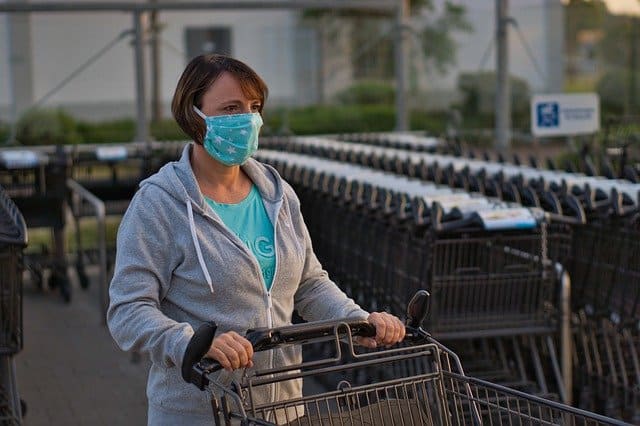Important misconceptions about the coronavirus pandemic – from immunity and contaminated surfaces to hand antiseptics, gloves and cleaning products – clarify experts
The real dimension behind common misunderstandings about many aspects of the coronavirus pandemic is captured by infectious disease specialists at the University of California, Davis (UC Davis).
Contaminated surfaces are not the highest risk
The main route of transmission of COVID-19 disease is not the touch of an infected surface, but through the respiratory system, stresses Dean Blumberg, head of the Paediatric Department of Infectious University of California, Davis.
He points out that what we need to focus on first and foremost is the use of masks and the maintaining social distance measures, and less the disinfection of surfaces.
Disinfection with cleaners takes at least one minute
Many people do not know that most cleaning products should be in liquid form and should remain on the surface for at least one minute, possibly up to 10 minutes, before wiping the surface, adds Natascha Tuznik, assistant professor of Infectious Medicine at UC Davis School of Medicine.
Hand antiseptics: Rub your hands until dry
When using hand antiseptic, do not let your hands dry in the air. To make the antiseptic more effective, rub your hands until they dry, according to Dr. Natascha Tuznik.
Hand antiseptics must have an ethyl alcohol content of at least 60%. Do not use antiseptic with methanol. The U.S. Food and Drug Administration (FDA) has warned that methanol is toxic and can be absorbed through the skin.
It is not necessary to wear gloves
There are no studies showing that disposable gloves increase protection against COVID-19. Touching an infected surface is not a major source of COVID-19 transmission and if you become infected it will be because you touched your face – with or without gloves.
Exhaust valve masks are dangerous
Valve masks do not block the transmission of coronavirus as they filter the incoming air but do not prevent it from exhaling. The same goes for masks specially made for people working in an environment with caustic and toxic substances.
If we recover, we’re not necessarily immune.
The scientific community still does not know if patients recovering from coronavirus have immunity and how long it lasts, says Dean Blumberg. The best estimate for this, based on the similarities between SARS-COV-2 and other coronaviruses, is that immunity may last for several months. This is why repeated doses may be required when developing a COVID-19 vaccine.
Herd immunity is not the best choice
Achieving herd immunity without a vaccine will have a huge cost to human lives. Globally, 70-90% of people will be affected and we are currently only 2-3%.
The fear is that too many people will be sick at the same time and hospitals will not be able to respond, as we have already seen in New York and Italy, according to the infectious disease specialist. If this happens, there will not be enough beds, doctors and nurses to care for people.
Even if others “look” healthy, avoid synchronicity
A common explanation given by some people when they are in a high collusion environment is that they feel safe because everyone “looks” healthy. The US Centers for Disease Control and Prevention (CDC) estimates that about two-thirds of COVID-19 cases are from asymptomatic carriers. This is why so much emphasis is placed on mask use, keeping distance and avoiding confusion.
